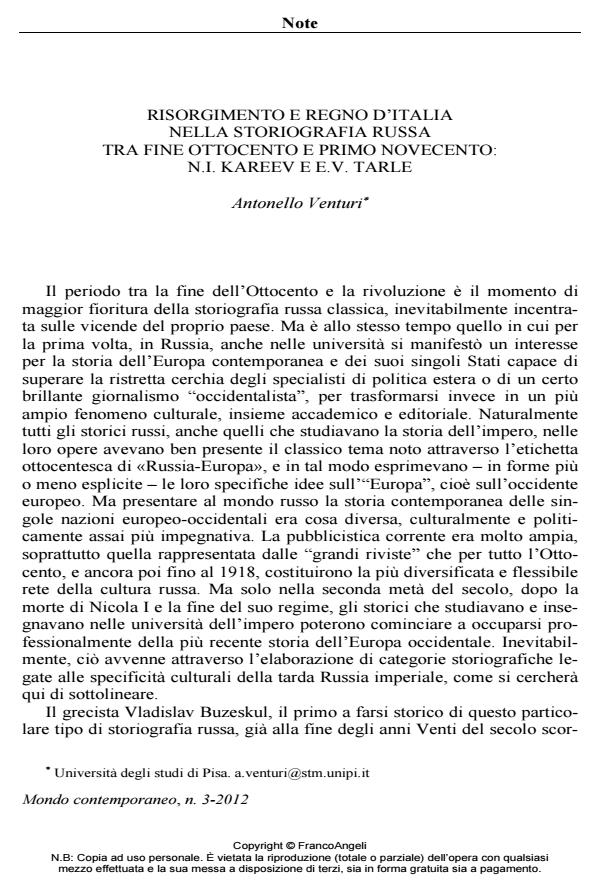Risorgimento e regno d’italia nella storiografia russa tra fine ottocento e primo novecento: n.i. kareev e e.v. tarle
Journal title MONDO CONTEMPORANEO
Author/s Antonello Venturi
Publishing Year 2013 Issue 2012/3
Language Italian Pages 20 P. 129-148 File size 317 KB
DOI 10.3280/MON2012-003004
DOI is like a bar code for intellectual property: to have more infomation
click here
Below, you can see the article first page
If you want to buy this article in PDF format, you can do it, following the instructions to buy download credits

FrancoAngeli is member of Publishers International Linking Association, Inc (PILA), a not-for-profit association which run the CrossRef service enabling links to and from online scholarly content.
Tarle are celebrated among the most outstanding scholars of European history in Russia between the end of nineteenth and the beginning of the twentieth-century. Their views on the Italian history of the time are well illustrated by their books which popularized the academic culture of the Russian Empire. The influence of the Russian political radicalism of the 1860’s is here widely represented. According to this approach, Napoleon III emerges as the driving force of the transformation of the European political order, Mazzini embodies the overwhelming weight of religion in the Italian political life, Cavour is primarily the enemy of popular revolution. In Kareev’s view also Garibaldi is essentially the man who can join both the royalist and popular elements rather than a representative of the popular movement, even though Tarle reinvigorates the impressive Russian myth of popular hero. Related the start of the kingdom of Italy both the authors share the same downbeat image of a wretched country, socially backward, illiterate and victim of endless anti-popular policies.
Keywords: Kareev, Tarle, Russian historiography, Italian Risorgimento, Kingdom of Italy, Cavour
Antonello Venturi, Risorgimento e regno d’italia nella storiografia russa tra fine ottocento e primo novecento: n.i. kareev e e.v. tarle in "MONDO CONTEMPORANEO" 3/2012, pp 129-148, DOI: 10.3280/MON2012-003004